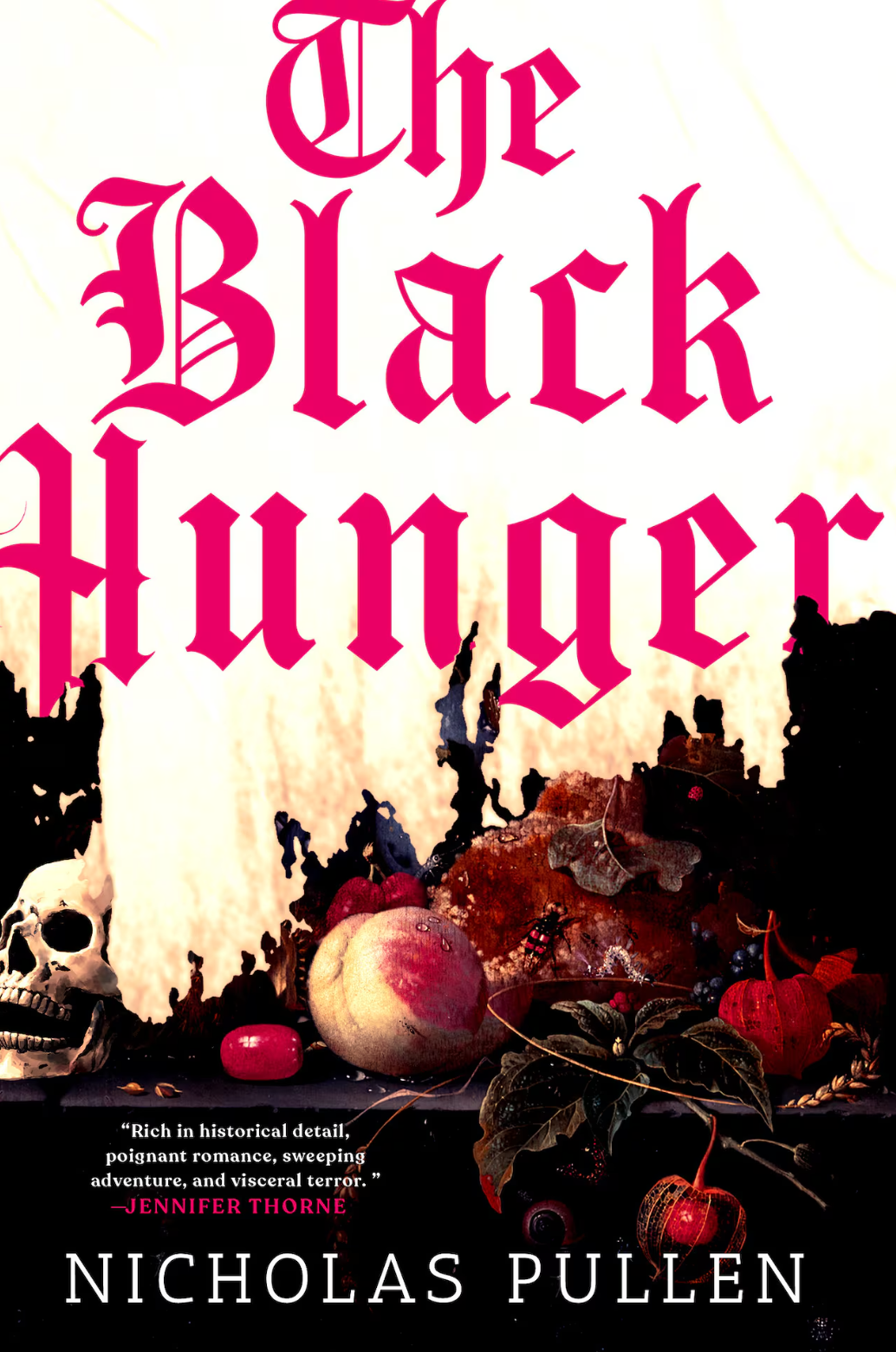Pullen’s queer gothic horror story weaves carefully between the lines of history

Nicholas Pullen | The Black Hunger | Orbit: £9.99
Reviewed by Thomas D. Lee
Earlier this year I was privileged enough to be sent a digital proof of Nicholas Pullen’s phenomenal debut The Black Hunger, a dark delight of a book in which the slow creeping dread of a queer gothic horror story is masterfully unspooled against the background of the ‘Great Game’, the Russian Civil War, closeted gay romance, Buddhist death cults, mad generals, diplomatic intrigue, colonial power struggles, and ancient prophecies of Armageddon.
The Black Hunger is being marketed as a gothic horror novel rather than a historical fantasy, but it contains elements of both. Historical novels with fantastical or paranormal elements often occupy the hinterland between commercial SF/F fiction and more ‘serious’ literary fiction. As a fantasy novelist myself I have no truck with anyone who sneers at genre fiction: a book is not necessarily lowbrow just because it contains dragons or spaceships, and not necessarily highbrow just because it contains creative writing lecturers committing adultery. (These are both enormously reductive examples). This has been proven time and again, by Ursula K. LeGuin and others. But there is something fascinating about the interplay and tension present in every work of historical phantasmagoria. The author must choose the extent to which their work will be a historical novel with fantastical elements, versus a fantasy novel with historical elements. Will dragons swoop in to burn Napoleon’s navy and win the Battle of Trafalgar, as in the Temeraire books by Naomi Novik? Will aliens invade halfway through the Second World War, as in Harry Turtledove’s Worldwar series? Or will the story begin on the solid ground of history, only for the protagonists to stray beyond the corners of the map, catching an unwelcome glimpse of the unexplained, and find themselves peering into a realm of unimaginable horrors?
The Black Hunger falls squarely into the latter category. It begins as a superbly well-researched piece of historical fiction: I must have been one of the few history nerds to be aware, even before reading this book, of the ‘Mad Baron’ Roman von Ungern-Sternberg and his obscure but cartoonishly evil role in the Russian Civil War, so I was delighted when he made an appearance. But Pullen’s novel is also skilfully intertextual, evoking the travelogues and ‘Great Game’ memoirs of the late nineteenth and early twentieth century, whilst paying homage to the gothic fiction of Wilde and Stoker from which The Black Hunger so clearly draws its inspiration. The occult themes and more fantastical elements of the novel are revealed slowly and gradually, simmering at their own pace and never being turned up too quickly. This is very refreshing in an age when most commercial fiction is under pressure to be front-loaded and straight-to-the-point, allegedly due to shortening attention spans (and actually due to the rising cost of paper.)
Nicola Griffith has recently written about the importance of verisimilitude, even in works of outright historical fantasy. You can have dragons and magic in the realm of King Arthur as long as you do your research when it comes to armour and pottery and sandals, making them feel like authentic artefacts of historical material culture. The dragons and magic then seem realistic by association. Sebastian Barry achieved a similar effect in Days Without End, a very different kind of novel: making the queer relationship of his central protagonists seem historical and grounded by threading it through an inarguable weight of granular detail from the US Civil War. Pullen does exactly the same thing in The Black Hunger, convincing the reader early on that they are reading about England and India during the heyday of the British Empire: this is not just history as set-dressing but a fully three-dimensional reconstruction of the past, which makes the intrusion of gothic horror all the more alarming and threatening when it finally occurs.
The Black Hunger is available in all good bookstores on the 8th of October. I look forward to meeting the author at his launch event at Somerville College, Oxford later this month, and I look forward even more to reading his future works.
By Thomas D. Lee
